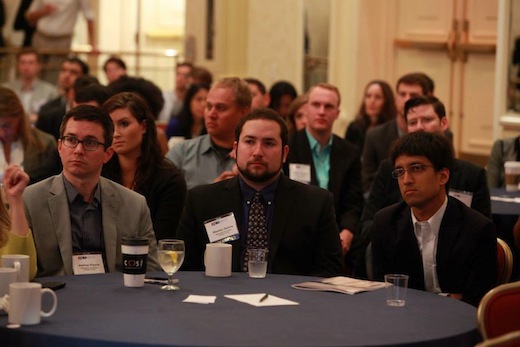
WASHINGTON – In 1932, because a state law “unreasonably curtailed” the right “to engage in a lawful private business,” the U.S. Supreme Court declared unconstitutional Oklahoma’s attempt to regulate the sale of ice. In a famous dissent, Justice Louis Brandeis argued the court had no power to protect business from innovative regulations just because the justices think the rules are bad policy.
“It is one of the happy incidents of the federal system that a single courageous state may, if its citizens choose, serve as a laboratory, and try novel social and economic experiments without risk to the rest of the country,” Brandeis wrote.
“Experiments,” in essence, are what many states are doing today in several fields, a panel of law professors says. And that includes regulating workers’ rights.
The early decades of the 20th century saw states take the lead in protecting workers, for instance enacting minimum wage and maximum hour laws. The federal courts declared most of those laws unconstitutional.
Today, states have more freedom to experiment, the panelists said, during the American Constitution Society convention in mid-June. Recent examples include legalizing marijuana and recognizing same-sex marriage. At the same time, states also started “experimenting” with rolling back the rights of workers and immigrants.
At the panel, entitled “…And justice for all,” Santa Clara law professor P. Deep Gulasekaram focused on “immigration federalism.” Using the claim the federal government abdicated its role, states enacted their own immigration laws. GOP-run Arizona and Alabama led the way against immigrants, over union and civil rights opposition.
But only politics separates states that have passed laws targeting undocumented immigrants from those that have not, Gulasekaram says. He added that immigration has become a wedge issue. He accused “political entrepreneurs” of shopping immigration legislation to receptive states, simultaneously stalling federal legislation that might actually address the problem.
Gulasekaram urged states to follow Maryland, the latest state to vote to grant drivers’ licenses to undocumented people. Enough state pro-immigrant laws, he suggested, could build momentum for reform at the federal level.
Indiana University law professor Steve Sanders called federalism “morally neutral.” He then said progressives should make federalism arguments.
Sanders used application of “horizontal federalism” – the concept that each state should “give full faith and credit” to each other’s laws — to same-sex marriage as an example. With prodding from Pride@Work and other gay-lesbian-bisexual-transgender rights groups, several states legally recognize same-sex marriage. Most others do not.
But what if one member of a married same-sex couple gets transferred to a state that hasn’t recognized same-sex marriage? According to Sanders, even if the U.S. Supreme Court doesn’t find a federal right to marriage equality for all 50 states, couples should have the constitutional right to carry their marriages with them across state lines. He called “interstate transportability” basic to the right to marry. Any exception for same-sex marriages is “unprincipled.”
Florida State law professor Franita Tolson agreed that “federalism can work for progressives.” She noted that because of our “constitutional structure,” states retain substantial power over the most basic guarantee of rights, voting. How states enforce that power affects who can vote and who gets elected. As long as states make it easy to get identification needed to register to vote, Tolson argued they could require voters to have that identification.
Days later, the Supreme Court threw out Arizona’s attempt to require prospective voters to produce all sorts of expensive alternative IDs to register to vote in federal elections. The federal Motor Voter law controls that process, the justices said. But if a state comes up with proof of the voter’s ineligibility, it can stop that voter’s registration.
Like the others on the panel, Columbia law professor Jessica Bulman-Pozen called federalism neither “consistently liberal or conservative.” Although she traced what she called “partisan federalism” to the time of Jefferson and Madison, Bulman-Pozen noted a recent resurgence, arising from the increasing polarization and regionalization of America’s two main political parties.
Still, with many areas where state and federal power overlap, she argued progressives should move the discussion away from competing claims of “sovereignty” and towards state initiatives, even in policy areas primarily under federal control. Anti-union forces have done that, using state legislatures to curb or kill state and local government workers’ collective bargaining rights. Labor law is primarily a federal issue.
Duke law professor Neil Siegel, the moderator asked participants to consider the risk of calling for a cutback in federal power. But as Tolson pointed out, advocates need not act as scholars. Progressives can and should be choosy in deciding when to make claims of federalism, he said.
David Sobelsohn is a staff writer for Press Associates.
Photo: Participants listen to a presentation at the American Constitution Society for Law and Policy convention (via ACS/FB).

MOST POPULAR TODAY

High Court essentially bans demonstrations, freedom of assembly in Deep South

Zionist organizations leading campaign to stop ceasefire resolutions in D.C. area

U.S. imperialism’s ‘ironclad’ support for Israel increases fascist danger at home


UN warns that Israel is still blocking humanitarian aid to Gaza






Comments